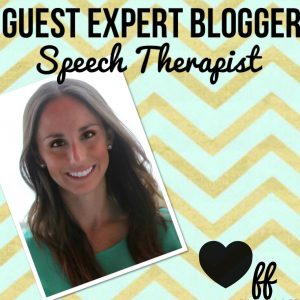
Autism in Infants: Symptoms Parents Should Be Aware Of
Hey Loves! I hope everyone is having a great week! Unfortunately autism spectrum disorder (ASD) is a developmental disability that affects more and more families every year. As parents, we start to worry about our children from the minute they are born. We stress out about what they are eating, how often they poop, and their sleeping schedules. I find that parents are the most concerned with whether or not their child is reaching their developmental milestones. We know that not reaching certain social and lanuage milestones could be red flags that there might be something wrong, in particular ASD. Forever Freckled has brought in the best to help all of our parents with the appropriate milestones for infants and toddlers and what red flags we should be aware of. We are so excited to welcome Tiffany Aronson, PsyD, to our Forever Freckled expert blogger family. Tiffany is an amazing clinical psychologist with extensive experience and expertise in early childhood and developmental disorders. Take it away Tiffany!
Autism Spectrum Disorder and Young Children
Autism spectrum disorder (ASD), is a group of developmental disabilities that can cause significant social, behavioral and communication challenges. This diagnosis is called a spectrum disorder because each child exhibits a very different presentation of symptoms ranging from very mild to severe. All individuals diagnosed with ASD exhibit challenges with social interaction, however, difficulties in speech and language, and behavioral problems may vary from person to person. Additionally, there are differences in symptom onset and severity. The Center for Disease Control (CDC) estimates that about 1 in 68 children have been identified with autism spectrum disorder. ASD occurs in all racial, ethnic, and socioeconomic groups, but is almost five times more likely to occur in boys than in girls.
Red Flags in Infancy- early pre-speech deficits may include:
- Lack of appropriate gaze.
- Lack of warm, joyful expressions with gaze.
- Lack of alternating to and from patterns of vocalizations between infant and parent.
- Lack of recognition of consistent caregiver’s voice.
- No response to name or other vocalizations but awareness of environmental sounds.
- Delayed onset of babbling past 9 months of age.
- Decreased or absent use of pre-speech gestures including waving, pointing or showing.
- Lack of early expressions.
Early Appropriate Language Milestones:
- By 1 year:
- Imitates different speech sounds.
- Babbling has both long and short groups of sounds.
- Gestures to communicate (waving, holding arms to be picked up).
- Has one to two words (hi, dog, dada, mama).
- 12-24 months:
- Says more words every month.
- Uses some one- or two- word questions.
- Puts two words together.
- Gestures by 16 months.
- 24-36 months:
- Has a word for almost everything.
- Uses two or three words to talk about and ask for things.
- Speech is understood by familiar listeners most of the time.
- May stutter on words or sounds.
Social Development Red Flags:
- 12-18 months:
- Does not help with dressing.
- Does not attempt to sing songs.
- Does not hug or kiss parents.
- Little or no eye contact.
- 18-24 months:
- Does not use “no” when interfered with.
- Lack of enjoyment in being read to.
- Does not attempt to comfort others when hurt.
- Little or no imitation of peer’s play.
- Does not point.
- 2-3 years:
- Does not participate in simple group activities.
- Does not demonstrate frustration when not understood.
- Little initiation of play with peers.
- 3 years:
- No involvement in pretend play.
- Little interest in other children.
- Extreme difficulty separating from mother.
- 4 years:
- Shows no interest in interactive games.
- Ignores other children.
- Does not respond to people outside the family.
Early intervention can make a difference. If you are concerned about a loved one, contact your pediatrician, a pediatric neurologist or pediatric psychologist specializing in early detection of ASD.
Helpful websites:
- autismnavigator.com
- autismspeaks.org
- firstwordsproject.com
Tiffany Aronson, PsyD, is a clinical psychologist with extensive experience and expertise in early childhood and developmental disorders. She received her doctorate in psychology from Nova Southeastern University in 2010. She completed her predoctoral internship at Miami Children’s Hospital and postdoctoral fellowship at the Marcus Autism Center in Atlanta, Georgia. She was excited to return to Marcus as a Staff Psychologist in 2014. When Tiffany is not working as a psychologist she is a proud wife and mother to a 3 year old boy. She is expecting a baby girl in early March 2016.


